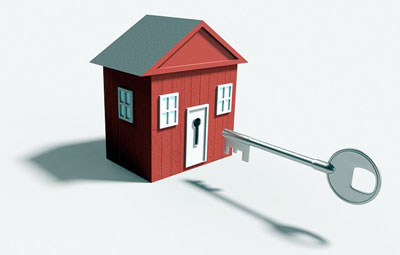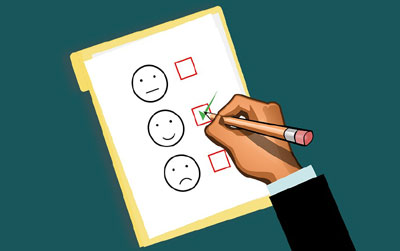Guide to Home Hostelry in Cuba

The aim of this guide is to introduce new landlords in Cuba to the world and to the art of home hostelry. It proposes many suggestions and tricks to offer a better service and develop essential skills, such as a good customer care and loyalty, among other things.
In business, quality is considered as an added value whether tangible objects are sold. But when it comes to offer services, such as the home rental, quality becomes not an added, but a prominent value. Sure, when we rent a house, we are providing a service where a material product (such a home for rent) is involved, where customer's choices, satisfaction and the chances of return will all depend on the location of the house, the comforts and the facilities it brings. However, more than 15 years of experience in tourism in Cuba have shown that, in terms of luxury, Cuban houses tend to equalize, to align to a common curve, then, what it really makes a difference is the quality of service, the landlord's kindness, the effort he/she puts to satisfy the customer in every aspect.
The quality of the service during the client's stay is what really matters and this will also be reflected in all the comments people usually share in advice websites. Therefore it's not just a question of personal experience, because all this can be seen in every day experience and comments from of the customers themselves.
Service

What is a service? In definitory terms a service is a solution of a problem or the satisfaction of some need. In the home rental scenario, it is rather a satisfaction of a necessity, even if renting also solves problems.
Quality of Service
This may be defined in these terms: the action to satisfy, in accordance with each client's requirements and expectations, the set of needs for which the customer asked for a service and this starts from the reservation process to the end of the vacation.
The casas particulares or vacation rentals in Cuba are characterized by the service they actually offer to the customers, therefore the care of these customers must be excellent, not only from the landlord, but also from any other member of the house, including the domestic staff.
Customer Loyalty or Retention

Creating customer's loyalty is defined as the action to satisfy the customer to the point he/she would like to hire again the same service and, in the case of home rental in Cuba, he/she rents back again the same home in his/her next trip.
The best way to foment customer's loyalty is, first of all, avoid bad surprises which may be: price changes, lacks in some services, not respecting a date once a reservation is done or other similar problems, unless a force majeure issue prevents the right execution of the service, for reasons really beyond the landlord's will. Another manner to guarantee customer loyalty is to surprise him/her favorably when an unexpected situation requires your intervention to surpass the customer's expectations.
Customer Care
There are all kinds of customers, there are these who are never satisfied, no matter how hard you work to provide a great service, these customers often expect things that simply are not possible in the working conditions where home owners must operate frequently in Cuba.
Nevertheless, in general, the best way to improve customer's care is to measure the quality of the service and, in the second place, to study reactions of the customers themselves. Asking to fill a satisfaction questionnaire is simply not effective, because most people don't express in write form what they really think.
We have seen, in the case of home rentals in Cuba (and not limited to this case), how a product success doesn't arises from the product itself, but from the quality of the service the product implies. Just consider that there are very few rental homes in Cuba which are below the average in terms of facilities and comfort, especially today, where home owners often have years of experience and enough wealth to provide all the facilities the competence also can offer. Voilà the reason for which the real aspect making the difference is the quality of service and, unfortunately, most home owners in Cuba are not aware of this, even if many of them actually do it well. But very few of them know what customer loyalty really means. It is definitely true and even more in Cuba, that the real advantage in the rental business, as well as in many other niches, comes from the path of human resources, from their selection, motivation, preparation and formation and surely not from futile details such as the presence of some luxury furniture, a split air conditioner or whatever. Understanding this difference is fundamental.
Another important thing is not generalizing. In commerce, each product is different and it is sold in different ways, each customer is unique. There are times more favorable than others either for the rent or sale of any given product. There is not a single technique of selling Sthat is good for all situations. It's also very important the way of applying these techniques, this is even more important than the kind of technique we are applying.
The best customer assistance is when we go beyond customer's expectations. Treat him/her better than we would like to be treated. Don't forget that the customer's care is king. When we assist a customer, we are not making him/her a favor. This is our duty. This is our business, this is our money. Falling with the customer is falling with our job, with ourselves. This is a slow but sure path to failure.
In this guide, we'll introduce the best techniques to reach a superior quality of service and customer's care in the context of home hostelry applied in the home rental business in Cuba.
The Notion of Being Professional

In any business, the professional involved in the customer care is the one directly charged to assist customers in everything related to the service they paid for. In the case of private homes in Cuba, the best suited person for the job is the home owner directly.
But, just being able to manage the job and deal with customers is probably not enough... The home owner also must be an expert in Cuban hostelry in general, especially in the way others home owners manage their businesses, the owner must know well the service he/she is offering, the product he/she is proposing, as well as the market and the competition. A home rental owner manages his/her own house, but he/she must not forget of being part of a larger business, that is, the market of home rental in Cuba. It is unthinkable to say we know our job without knowing how the market works. Once more, a lot of home owners completely ignore the whole stuff.
If we really know the service we are offering and the difference between our service and a similar service offered by a competitor, we'll be able to show an image of self-confidence and trust that will further help to better provide our service. Sure, talking to the customer about a competitor is not good, but knowing the competence will definitively help us to provide better alternatives. Also knowing the market where we are, will allow us to know where we are going, and this will be a time saver, for example, by avoiding to offer a quality level that is currently not possible or not providing something just because we don't know that a competitor is able to provide it.
The professionalism is also very important and managing a family home rental business doesn't mean that you are not required to be a professional. Being an expert in customer care is not only something we learn with experience (despite it is the most important factor), it's also something we can learn. Although no university teaches this, there are several courses of marketing and customer service which could really add a value in your day to day home rental activity.
Being professional is not only a matter of knowledge and expertise. It's also a problem of personality. You'll get more professional value if, aside from being a good landlord who knows the business, you also are someone who likes to socialize, you have social skills, you are polite, you are friendly and you have enough self control to overcome critical situations, problems, last-minute issues, claims and other circumstances which may arise with customers. For this reason and for others, a professional in customer care must work on his/her personality constantly.
Communication

Another important skill in providing a good service is the ability to communicate, the way to express things clearly and not running into the risk of being misunderstood or incorrectly communicate an information. Sometimes, an error in this type of communication may cause many misunderstandings and problems, issues which don't depend on a bad customer care or a lack of knowledge or professionalism, but simply a thing you have not been able to communicate in a convincing way, a message where you've not been able to explain yourself.
The communication is made up of several elements:
- The emitter, the source or the sender
- The message
- The transmission medium
- The receiver or recipient
The emitter is the person or the entity wanting to communicate something. The efficiency of the communication is greatly affected by the credibility, prestige and authority. This also may involve affective components, that is, trust, chemistry and attraction towards the source.
You have to take advantage from everything the receiver may put from his/her side in order to improve your credibility.
The message is composed of ideas, concepts, feelings and data. The essence of the foudation of any message depends on its goal mainly, on its structure and the way it is transmitted.
The transmission medium is constituted by the different channels which will be used to the transfer. These channels may be either personal, that is, there is a direct contact between the sender and the receiver or impersonal, information is transmitted by a medium, such the radio, the TV, the phone, the write form, and everything lese not consisting in a direct communication. Even if most messages are exchanged throughout personal channels, some of them are still impersonal, for example, when the customer orders the service using a web site, a phone call or an email, and there is no other direct contact with the landlord. Both kinds of channels have their advantages and disadvantages and the landlord must have the guile of being able to know what channel to use in any given time.
The receiver is finally the recipient of the message and, in this discussion, it's the customer in most cases.
At first sight, the fact of define the receiver as the customer seems evident, nevertheless, in order to ensure an effective communication process, it is best to know the characteristics of the receptor exactly.
Interferences in communcation
Sometimes, a communication process may be affected by various interferences, in dependency of the communication channel, either personal or impersonal. Anyway, these interferences must not only be detected, identified and managed, so to affect the process as less as possible, but we must also avoid to convert ourselves to a source of interference, because it is often the emitter who creates them.
We will expose below various rules to ensure a good communication process:
- Go to the point and don't turn around, try to talk about really important things, the language must be clear, concise and adapted to the characteristics of the customer.
- You must establish a balance between formalism and joviality. This means that the emitter, without stopping to be polite, serious and respectful, also must establish some familiarity with the receiver every time it is needed, and this will allow to relax the tensions and make that the receiver feels more comfortable in a friendly environment.
- If it is needed, you should use gestures and verbal images to ensure the memorization process to the receiver, especially when transmitting something important. The emotionally involving things are the best memorized. And where it is not possible to use gestures or easy to memorize images, the sense of humor may be a good ally.
- We also must be conscious about the environment where we are communicating.
- We must be prepared and we must know all the topics about which we are talking about, if needed, it is good to take notes and, in most case, listening is paramount.
Forms of Communication
In an oral communication you must learn to distinguish between this four elements:
- What you want to say
- What you're actually saying
- What the receiver listens
- What the receiver understands
Not all the customers understand quickly what you want to say, starting from the way you said it. You should not lose your patience or behave with arrogance when a customer is not listening to you or he/she doesn't interpret you well, you should instead act in function of the customer's characteristics, taking into account that your goals are:
- Uderstanding what the client wants.
- Make sure that the customer understands what we are saying.
The Body Language
It is said that words represent only 20% of overall communication. The remaining is made of gestures, expressions, perceptions, pitches, movements, even silences. All this put together is called body language or extra-verbal communication.
According to the researcher Albert Mahrabian, during a communication, gestures make 55% of communication, pitches make 38% and words only 7%. All this means that if we want communicate a message successfully, words will only be memorized if we use the best tone and we are gesturally expressive.
What a customers care professional must avoid to say or to let guess during a communication is negativism. And among negativisms, the more important to avoid are recriminations to the customer, egocentrism or making excuses for not providing a good service.
The Personal Image

Our image has a key role in communication, especially when it comes to avoid to create barriers because of that. Our image is not only made up from our physical or our personal style. It also depends on our gestures and our talking style. Things where negativism may enter in action.
What is a negativism? Within a communication channel it is any element that may produce in the receiver a different effect than the one expected or against the emitter goals. Therefore, a negativism should be interpreted as a negative result of the communication, not as something negative we might say. The elements of negativism may be external circumstances, direct or indirect situations, gestures, expressions or attitudes.
Some attitudes must always be avoided in order to avoid negativisms. Here's some general suggestions:
- When you shake hands, wait that the customer makes it first. If he/she doesn't take the initiative, then take it, because you are the one who is providing the service and you don't want to seem rude. Your hand must not be flabby, sweaty or strong as a pincer, but it must always adapt to the customer and the circumstances.
- If you smoke, never do it in presence of your customers, unless he or she is offering you a cigarette. Recall that in Cuba smoking in front of someone without consulting is perceived as normal (people do it without even noticing it), but outside Cuba this is a severe error, this is extremely negative, because outside Cuba, antismoking culture is much stronger. Therefore lighting a cigarette in front of a customer who doesn't smoke would be a fatal mistake.
- Avoid to get too close to your customer or touch him/her.
- Avoid to show more or less familiarity than the customer is willing to give or receive.
- Another mistake is not understanding the feeling or mental state of your customers, for example, if he/she just arrived from a long voyage, he/she might feel tired and not willing to make some given things, like signing the renting papers. A polite and gentle home owner, would mention this the day after.
The Art of Being Eloquent and Symphatizing
The aim of every service provider is, before all, leaving a good impression and then create an agreeable climate. We have six things that might help us to obtain this and they are:
- The way we introduce ourselves.
- Smiles.
- Being kind.
- Being polite, but not excessively.
- Having sense of humor and being able to use it in function of our goals.
- Demonstrate an agreeable familiarity without losing our posture or education.
According to some experts, in order to keep a positive communication, we must be energetic, natural, franc and friendly at the same time and we also have to talk always with a warm and sure voice.
Personal Assistance Quality
We mean the attitude and disposition of mind we have when we are interacting with someone. In order to make it effective, our communication must be agreeable and positive, in particular, we should not demonstrate to be passive and poorly interested to assist the customer. This latter will perceive that you only want to earn money without really wanting to provide a quality service. For this reason, you must always look available, dedicated and show attention towards what the customer is saying. This way, the customer will not have a negative perception of his/her experience with you.
Empathy consists on putting yourself in your customer' shoes, but without being affected by his/her problems, while sympathy is having a positive attitude so to result attractive and agreeable.
For this reason, in case of any complaint, we must be emphatic and sympathetic at the same time, we should try to listen the customer, to put ourselves in his/her shoes, to compromise us to find solutions, if any and especially avoid justifications, giving the fault to others, bypass responsibilities or replicate aggressively. At the end of this guide, we will come back on this subject.
The Professional of the Institution

Many times, the professional of the institution is the very face of the destination. And, in order to provide an idea of professionalism, the essential points are first to leave a good impression, then your attitude, from which depends the way you will be seen and the way the customer will feel. The body language must be positive, your head must be high (but not haughty), smiles must be natural and you must care the movement of your arms. We have already talked about the pitch of your voice.
The professional should show interest to what the customer is saying, listen and not interrupt, he/she should use sometimes the customer's name during the conversation, this will add a touch of customization to the chat without removing professionalism and impersonality, but adding at the same time a warmth the customer will need to feel comfortable. The positive behaviors, the kindness, the zeal, the helpful attitude, the impersonality, the familiarity, the courteousness and the efficiency, are all keys for providing a quality service. Customers are today more conscious about quality of customer care and they don't forget it, neither in good nor in bad.
Customers

The customers are the most important card of any tourist destination. With this, we mean, not a place frequented by tourists, bust instead an institution which receive tourists in a professional way. What is a tourist? A tourist is someone who visit a place which is not the same as his/her place of residence, during a period no longer than 12 months and without having any studying or working activity and, spending at least one night in a touristic establishment, such as an hotel.
Tourists choice their destination by investing time and money in the process and by finding information at travel agencies or websites. Then, for this reason, they create little by little expectations depending on:
- Their level of knowledge about the place they will visit.
- Their past experiences.
- Their personality or temperament.
The market of tourism in general is becoming more complex, there are more information media and services, transports are more global, the offer is more diversified and the travel is now a more frequent activity than before. The internet offers maps, information, or advice-based websites, where users exchange opinions and experiences. For this, vacation rentals in Cuba are now part of a new, larger, more diversified, even more competitive context. It is certain that tourists are now more demanding, their standards are higher.
In the context of vacation rentals in Cuba, the customer expects that these are easy to visit and their comfort conditions follow international standards, some of these rentals even offer restaurants and bars. From these services, tourists expect typical local meets, so they can bring back the flavor of Cuba as a souvenir.
The final goal of any customer is that their expectation are met. A satisfied tourist will make good comments about the destination, will repeat the visit and also send other people and will do several other things which will contribute to generate revenues and wealth to the destination. In the case of Cuba, satisfied customers will help the vacation rentals not only to continue offering their services, but also to offer better ones, despite the difficulties in Cuba, either legal and material. This process of benefit generated by the customer is usually called customer's loyalty. In business, this concept is so important that it completely explains all possible loyalty plans, bonus, miles, points and many other courtesies big and small chains offer just to not let customers go. A satisfied tourist will encourage a process of natural and free promotion, which is the best. And big companies know that perfectly.
On the other hand, when customers are not satisfied, they will not talk well about the destination, they will also provide online bad opitions or advices about their experience. Only a unsatisfied customer over ten will repeat the visit, when, for special reasons, he/she will not have other choices. This means that, each ten errors you're made, you'll suffer the lose of nine customers without counting that each unsatisfied customer will transfer his/her opinion to a minimum of ten other people, not talking yet about the online impact. Finally, unsatisfied customers are more willing to publish their bad experiences than satisfied customers publish good ones. Because happiness has no history and "sad songs say so much". Then it is easy to realize how much customer satisfaction is important and how much good opinions are harder to get than bad. For this, the entire success of the destination is at risk.
Not caring about customers and not getting their loyalty is a fatal error for every tourist institution, including vacation rentals in Cuba. It is said it costs five time more to get attention from a new customer than keeping it from an existing one. In Cuba, when home rental fail and owners are forced to give back their license, 90% of the time, it's because that they have not understood the importance of customer loyalty and they have not applied the related principles. Obviously, in times where there is plenty of tourism, as it was, for example between 2014 and 2016, everybody is successful and all the houses get full. But, for these who didn't care about the customers, things begin to complicate starting from the first low tourism season, furthermore, when there is a low number of tourists, it is still more important to care about old customers and provide to new ones more attention than you usually are used to give.
Competition among vacation rentals is every day bigger. Particularly starting from 2013, a true explosion of new rentals grew like mushrooms, making the home rental market one of the most proficient in Cuba. At least up to the end of 2018, where a long low tourist flow caused a demoralization in this growth. For this reason, all private activity and especially the rent of a house, must get customer satisfaction as a warranty of repetition and recommendation to others. This is the only way to ensure enough income and keeping a competitive poisition.
It's sure that fulfilling every expectation is an impossible task, especially in Cuba. But even in this manner, you have to try to direct your whole effort to accomplish as more expectations and needs as possible.
In the home rental market there are two kinds of satisfaction. First of all, the customer care and, second, the quality of the services and the products related to this. The customer is not there just to pay. The house must be able to provide courtesies, just like the best hotels, including the fact of not charging some services that many home owners are prone to charge. It is like when a mechanic doesn't charge for a minor job or he'll charge the piece but not the workforce or vice-versa. It is about one of the most effective ways to get a customer's loyalty and especially, you always must be aware of the fact that the cornerstones of this satisfaction are:
- Care
- Quality
- House's courtesy
These three elements reunited will make the success, they will guarantee the customer's loyalty and final satisfaction, ensuring a return and that word of mouth propaganda magic will come true. Furthermore, these things will complement each other, when a quality element is lacking it may be compensated by care and, once more, the courtesy, for example.
In most occasions, the quality of service in tourism is intangible and then, it is retrospective, that is, it is apparent or visible only after it was consumed. In case of dissatisfaction and, given the intangibility of most products of tourism, the customer doesn't have the choice to return any product to store if the quality is less than expected. This occurs in most cases when the product is a service and not a material good.
Lastly, quality means giving to the customer what he/she expected and needed. It is the continuous adaptation process to customer expectations, which may evolve over time. For example, if a vacation rental is using noisy and old air conditioners or showers with a little water pressure, the fact of investing in new equipments, like a new air conditioner or maybe a water pressure engine, corresponds to an accomplishment of this adaptation process, not only with respect to the customers but also to the market, where some number of improvements are expected. Investing to improve service is never a bad idea.
Some vacation rentals will raise their prices after these improvements, but this is a big mistake, because it violates the courtesy and the customer loyalty principles. Greed is another mistake that must be avoided. Not all the customers want to pay more to get a more silent air or a greater water pressures. Most of them will want to pay the same price. We can't force everybody to pay for an improvement which is due and which only will benefit the owner at end. A rental must improve by itself, must do it to accomplish a necessity to adapt the evolution of expectations and to improve quality, therefore it should continue to offer better services at the same price (the notion of courtesy). Price raising should be motivated by other reasons, not just investing for improvement. This is also because these improvements are minimal quality parameters which are normal and which no longer constitute luxury, not in a vacation place at least.
Typology of Customers

Each individual has a unique personality, temper and temperament are as individual as fingerprints. But they also depend on stimulus, mental mechanisms and past experiences which all influence the behavior and, despite the fact that each person is different, it is still possible to classify customers into few and relevant categories.
The Introverted Customer
This client is often reserved, circumspect, serious, calculator, distant. This distance is better treated with objectivity; if your customer does not express his or her opitions, you should have to get confirmations or objections, by trying to involve and encourage that customer to to express his/her level of conformity with the service. Usually, this client is faithful once the barriers have fell, and when it happens, you must try to not deceive him/her, so you'll keep his/her loyalty. But, it is not easy to reach this goal. Your customer will continue to be distrustful or suspicious in front of optimistic or extroverted attitudes. You should then treat him/her just like you would be treated and with the same trust and confidence he/she is disposed to give or receive.
The Tough Customer
The tough customer is a cutting character, self-confident, firm, stubborn and absolute. When these customers argue about details, they speak louder, they gesticulate, they contradict, and then you should treat them with self-confidence and professionalism, using good points and trying not contradict them, to never use the "NO" answer, even if they love to use it a lot. These customers will give often the impression they are not interested and, in that respect, you should always keep a professional attitude, not to brag your sales, but making the point and concretizing.
Extroverted Customer
Some customers are kind, friendly, cool, cordial, talkative. They want to be agreeable. At this, you should respond with sympathy and you should are as expressive as they are, keep a good eye contact and when they are talkative and funny, you should make feel them protagonist, by priding their vanity with elegance.
Difficult Customers
Many customers are very demanding, but, at the same time, they want to save money as much as they can, or just one of these things. They are often suspicious and skeptical, indecisive and then, you should manage them by offering collaboration, giving them written proofs, not forcing their decisions and being impartial with them.
There are also aggressive or terrible mood customers or impatient, rude or touchy. With them, you should be patient and not answer with the same weapons, not contradicting their fixations; don't show neither inferiority nor superiority, keep yourself unalterable and with attentive quietness, expose their mistakes with kindness in front of their impatiencies, exigencies or bad remarks.
There is also the inaccessible, evasive customer, who puts barriers. This customer should be treated in a similar way than the introverted customer, because he/she is generally faithful once his/her expectations are satisfied.
Complaints and Claims

Clearly, as home owner, you won't have a "claims and suggestion department", but you must receive all them personally et create a climate which conducts to the resolution of them.
Subjective and emotional aspects should be treated before objective aspects, because emotions have a big role in resolution of problems. Without these aspects, it is difficult to deal with complaints and solve problems. It must be a climate of collaboration, not confrontation. For this, it may be helpful to try putting yourself in the place of your customer and think how this concrete problem would affect you.
Before solving a problem you must clearly identify it and verify after that the solution will satisfy the customer.
A very important fact is also understanding the complain and learn from it, so to avoid the same mistake with another customer. Sometimes an immediate lose is better than a future bigger lost. For example, let say you rent 3 chambers and you get a customer who only wants 2 and he/she doesn't want to share the third with another tourist; the right attitude here is to satisfy your customer and keep the third room closed, even if you will apparently gain less. Remember, the third chamber is only a potential gain, but the other two are a concrete, real gain. It is not guaranteed you will rent also the third room to another tourist and it is much better to rent two with satisfied customers than three being you the only winner. Pleasing your customer is more important than getting everything.
After all, if you are an intelligent professional, you have to get involved to solve what the complaint has raised and you must make sure that the solution will be executed. In this respect, it might be useful to maintain a registry of complaints where you'll also write the measures you have taken and the solution you have applied.
Self-Control That's The Key

The hostelry professional's final goal is being able to conquer the customer and this is possible not only thanks to personal charm, but also in function of the kind of customer you have. There are customers you can gain using only your social abilities, that is, waking up in them the feeling of friendship and cultivate it. And others customers may be gained by keeping a professional and impersonal attitude. For this there is a set of abilities which will be useful for your self-control. We will describe them shortly.
Conscience of One-Self
Being self-conscious is knowing not only your strong points but also your weaknesses, your personal resources and your internal states in order to know, any time, what best you can in any given situation. The self confidence comes from the security with which you make the evaluation of your qualities and your flaws. For this, you must develop a very accurate spirit of auto-criticism and auto analysis.
Self-Control
In any professional situation, you must be able to develop some degree of auto-suggestion which allow you to manager your emotional states, without being affected by them, for example, not manifesting if you are very angry or anxious in a situation that inspire these emotions. For this, you should build a compromise with your personal value making you to feel righteous and trustworthy. You have to be proactive in front of the difficulties and flexible when facing changes.
Motivation
Being motivated is also very important, because motivation will allow you to define your goals all the times and the reasons for which you have them. Everything you are doing, you do it for a motivation and, the more motivated you are, the more engagement you'll have with respect to your goals. The motivation of a hostelry professional is to get a lot of customers and obtain loyalty from most of them, so to build a stable clientele and not having to find new customers all the time. The professional who already possesses his/her clientele will continue to have his/her customers even during low seasons. And the one who succeed on this, will succeed because he/she had been able to get loyalty from his/her customers, it is because he/she always had a well defined motivation which dictated and conducted all his/her actions, especially in respect with quality.
It's fundamental to being able to identify what do we want in order to establish an engagement of action which will bring us to take action whether the occasion arrives.
Empathy
The empathy is another element of the equation that makes you a good professional of hostelry. To be emphatic mean being able to put yourself at the place of others, in this case, at the place of your customer all the time. Then you should ask the question: what would I do if I was at the pace of my customer and it happened the same thing? Nevertheless, being emphatic also means to get sincerely interested to your customers needs and apply a series of qualities allowing you to anticipate, recognize and satisfy these needs.
Social Skills
We have already mentioned this at the beginning of this section. Social skills are a way to gain a customer. It's being able to use your sense of friendship, your talent in being able to be friend of someone and to gain a friendship when it comes to treat with a customer who is sensible and responds to social skills. Having these abilities is also being able to work in team and organize work with others.
Perception
It's the ability of being capable to see non verbal signals, once more, it's being emphatic and maybe being able to guess an emotion the customer doesn't even show neither verbally nor extra-verbally. All this is important in the customer's care and, for a professional of hostelry, it's a paramount.
Listening
Not only listening carefully but also read the requisites that a customer sends you by email; this too, for example is a sign of quality, empathy and trustworthy. Who doesn't have this skill will have very few chances to get customers in his/her working niche. Very important is to be able to listen and allow others to finish what they are expressing.
Sentimental Management
This means having the control of what we feel and being able to perceive what others are feeling. It's knowing and interpret the extra-verbal language to get a professional advantage in face of all these signals. It's to express these emotions when they allow us to improve a conversation or increase convincing skills. It's to react with spontaneity and take into account the feelings when we take decisions.
Intimacy and Authenticity
It's very important to develop a personal sympathy with others.
Being Able to Lose
We have already mentioned this. Sometimes it's better to gain less than expected in order to achieve a bigger goal, in this case, getting a customer's loyalty or make a successful collaboration with an agency. The same house who doesn't renounce to rent the third chamber in our previous example, if it lose the customer, it will lose also its credit with the agency that sent the customer and this agency will hardly send another one. This happened to us recently, we have lost a customer because of a house that made something similar. It gained some demerit score in our Home Rank, by falling from the first to the last page in our search results. This house will not receive other customers with ease, because we have plenty of better partners.
Evaluating the Personal Impact
Understanding the impact of your own behavior over others. Recognizing how others will perceive us and the consequences of our actions in creating relationships.
Conclusion

Being a professional of hostelry in Cuba, especially when we manage a single vacation rental at most, it an activity that, technically looks quite simple, but it becomes complicated whether we are facing to what the right mindset should be, the right way to manage the business.
The professional of hostelry should often, not only be able to treat customers, but also to collaborate with agencies. Especially the rapport with these is critical.
The management of the rapport with agencies was not the main goal of this guide (it is a topic outside the aim of it); the goal was to describe the relationship with the customer and the art of being a professional of hostelry.
This profession is simpler in Cuba than outside, because most rental managers only have to deal with their own home. Nevertheless, if we said it from the Cuban context, is something that implies its own particular challenges, that a good professional must be able to manage.
The final purpose of this guide was to facilitate a correct management in respect to this profession in Cuba, enriched with general suggestions that come form common sense and the professional environment in this niche. We hope that this aim was accomplished.







